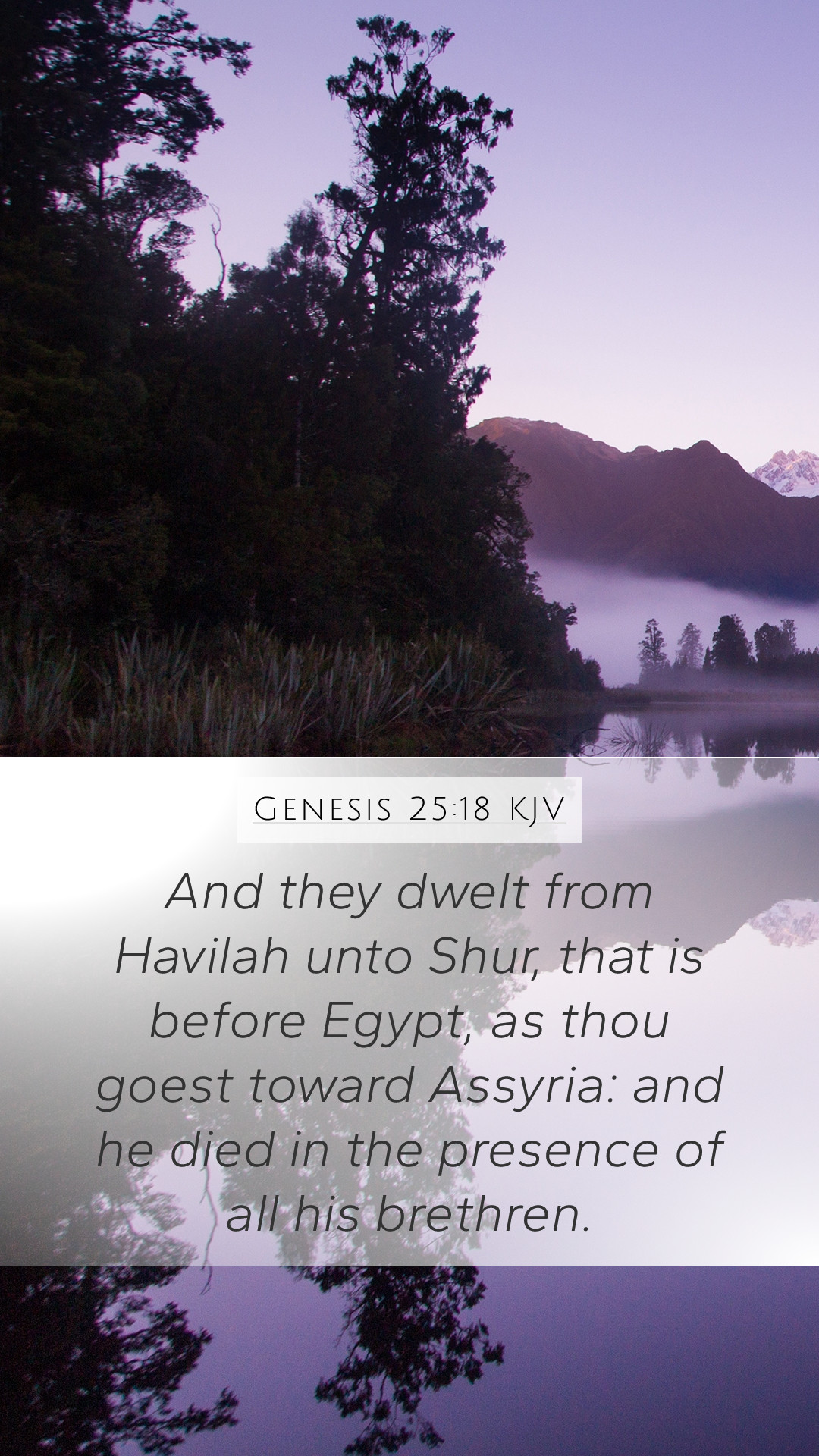Understanding Genesis 25:18
Genesis 25:18 states: “They dwelt from Havilah unto Shur, that is before Egypt, as thou goest toward Assyria: and he died in the presence of all his brethren.”
This verse concludes the narrative of Ishmael, providing insights into his life, lineage, and the territories his descendants occupied. The significance of this scripture is understood through various biblical commentaries which highlight its historical and theological implications.
Meaning and Interpretation
According to Matthew Henry, this verse reflects Ishmael's relation to the people of Israel and his role within God's covenant plan. Ishmael was characterized as a wild man, indicating a lifestyle that was often at odds with the families around him. His descendants, the Ishmaelites, would become notable in biblical history, often linked with conflict and rivalry with the Israelites.
Albert Barnes elaborates on the geographical aspect, noting that the area mentioned—from Havilah to Shur—signifies a stretch of land that correlates with Ishmael's descendants. This delineation not only provides a historical background but also highlights God's promise to Abraham regarding his sons. The mention of Shur provides a context for understanding the movement and settlement patterns of the Ishmaelites in relation to Egypt and surrounding territories.
Adam Clarke further adds that the phrase “in the presence of all his brethren” can be viewed within a cultural context, showing Ishmael's relationships with his kin and perhaps hinting at a form of recognition or respect granted before his passing. This strengthens the notion of community among Abraham's descendants, even amidst differences.
Bible Verse Commentary
In summary, Genesis 25:18 serves not only as a geographical account but also as a reminder of the covenantal relationships established in the Old Testament. The commentary of these respected theologians helps break down the broader implications of Ishmael's life and death, providing biblical exegesis that is essential for Bible study insights and understanding scriptural meaning.
Related Bible Cross References
- Genesis 16:11-12 - Birth of Ishmael
- Genesis 21:14-21 - The expulsion of Hagar and Ishmael
- Genesis 17:20 - God’s promise to make Ishmael a great nation
Applications and Lessons from the Verse
The lessons derived from Genesis 25:18 can be seen in various aspects of
Bible study topics. For instance, it invites believers to consider the significance of their lineage and heritage in their spiritual journey.
Furthermore, it poses a relevant question: how do we interact with, respect, and recognize those in our own communities who may differ from us yet share a common ancestry or faith?
In-Depth Bible Verse Analysis
To engage in in-depth Bible verse analysis, one might explore the historical context of Ishmael’s lineage and its impact on subsequent generations. How does this lineage connect with present-day spiritual applications? The relationships and tensions highlighted in scripture are reflective of larger narratives within families and communities.
Final Thoughts
In conclusion, the examination of Genesis 25:18 not only enriches our Bible verse understanding but also encourages deeper engagement in Bible study resources and learning communities. By analyzing such verses, we grow closer to understanding God's overarching narrative in Scripture, enabling us to apply these insights to the complexity of our daily lives.


